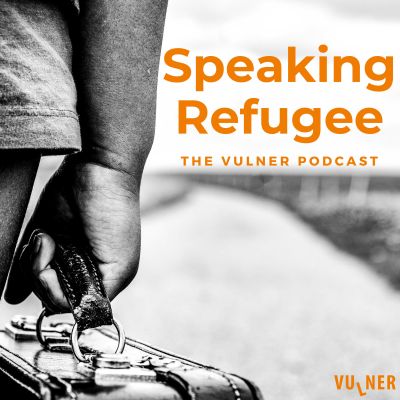A six parts podcast series that explores how refugees experience their „vulnerabilities“ when seeking asylum. In this podcast we want to focus on the individual experiences and feelings, that constitute the „vulnerability“ of refugees and that are often overlooked. - We bring together scientific field work AND the stories of refugees. We wanted to know: How does vulnerability show at the different stages of the migration process? To answer this question we talked to three people from three different countries: You will meet Jameela, who is a refugee from Afghanistan and currently in an accommodation centre in Belgium. Gabriel, who has a refugee history himself and is now working with refugees in Uganda. And we talked to Fatima, a humanitarian worker in the MENA region with Basmeh and Zeitooneh – one of the areas of concentration is Lebanon. This podcast is a part of the VULNER project, a research project that aims to understand the vulnerabilities faced by migrants, to enable decision-makers to better identify positions of vulnerabilities and address them...
https://vulner.podigee.io/
Episode 3: Food
When it comes to making a strange place your home, food plays a central role. It makes it possible to incorporate small rituals from the previous life into the new life. But food can also be a part of our daily struggles and sorrows.
Food is the fuel of every living creature on this planet. We need it to have energy for our daily duties and to maintain life itself. Children need it to grow and be healthy. Food can also be a central part of family or cultural life and food can make us happy. It brings people together at one table. It is a very important part of all the rituals that shape our lives: A cake for our birthday, a wedding buffet or the funeral feast, when someone died. We connect over food. We share our food with people who we call family and friends.
Food CrisisBut food can also be a part of our daily struggles and sorrows. The World Food Programme estimates, that 345 million people are facing acute food insecurity in 82 countries for 2022. This food crisis is hitting those who are already the most vulnerable particularly hard. And forced migration — as a result of conflict, natural or environmental disaster, or other stress factors — is one of the biggest causes of hunger in the world today.
Food securityIn Lebanon the VULNER research shows, that many refugees suffer from food insecurity. The „Vulnerability Assessment of Syrian Refugees in Lebanon“, or short „VASYR 2021“ showed that food security was one of the main challenges for Syrian refugees in Lebanon. Fatima tells us about a project that aims to help: Food Baskets.
Posho and BeansBut food itself can be a part of resilience too. Because food is very often connected to family and community rituals. Having a good breakfast can be part of your start in a good and productive day, as Gabriel tells us. In Uganda, there is a very common dish, called Posho. "Posho and beans is the common food that everyone can easily get. It is the food that every refugee is given for survival", sais Gabriel.
Food StressThe VULNER report on Belgium showed that "The asylum seekers are not able to decide what to eat and when to eat. In the reception centres, there is usually no private or common kitchen to share for the residents." This results in a phenomenon called "food stress" - we will talk about the meaning of this and to Jameela, who had problems with Belgium food because she was pregnant and her blood sugar went up.
In the upcoming episodes we will talk about vulnerabilities and resilience strategies around gender, capital and health. We hope you’ll be with us again.
This project has received funding from the European Union‘s Horizon 2020 research and innovation programme under grant agreement No 870845.
